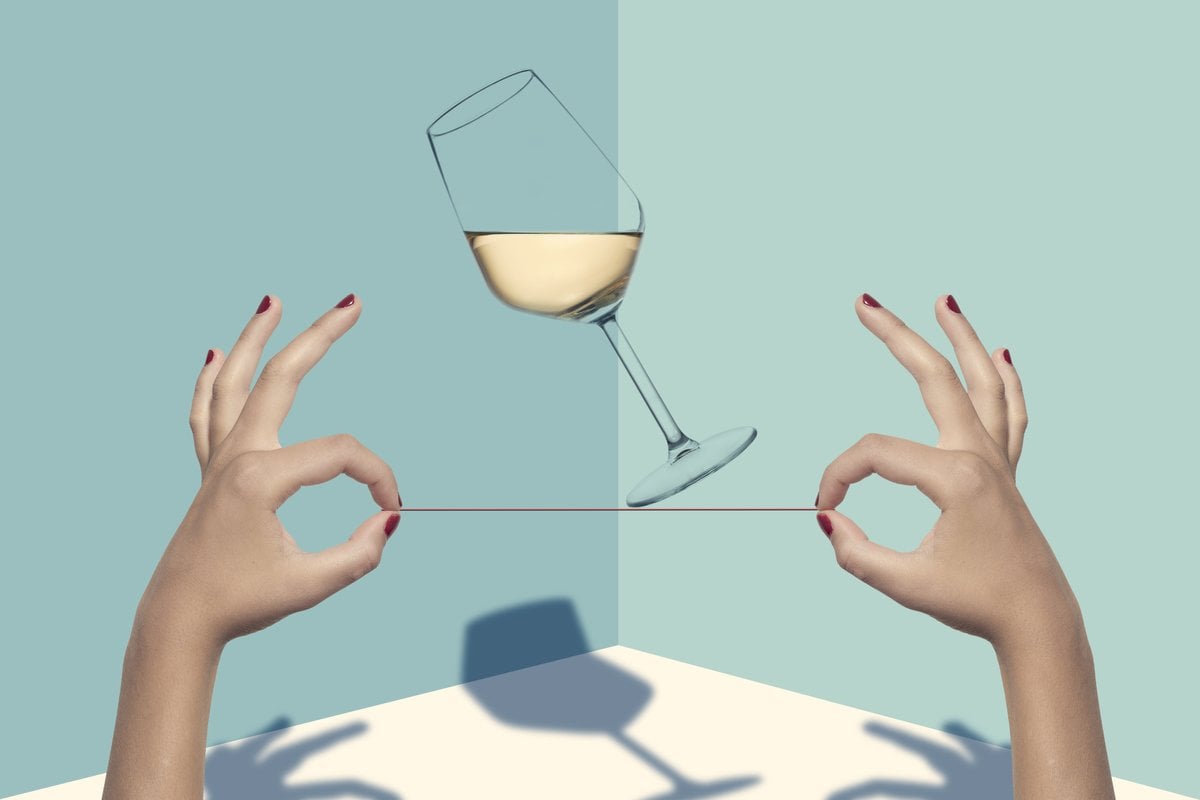
When festive season wraps and one year ticks over to the next, words like "dry" and "sober" start to enter our vocab, as we look for ways to counteract the overindulgence (or perhaps the... guilt?) of the previous party-heavy weeks.
And if you want to give up alcohol altogether, that's absolutely something you can do!
But maybe you don't want to give it up... completely.
Maybe you're not so interested in being sober as looking for a way to be more... sober adjacent? Sober flexible?
And that, alcohol reduction expert Georgia Foster tells Mamamia, is not only fine – it's also very achievable.
Watch: when your work wife says she's giving up drinking. Post continues below.
"The dilemma for so many women is finding the balance of drinking a little, rather than completely abstaining or, on the other end of the spectrum, drinking a lot," she shares, explaining that you don't have to do away with having a cheeky drink here and there if you don't want to.
"The good news is, I can assure anyone concerned with this drinking style that there is absolutely nothing wrong with them," she shares.
The 'perfectionist' drinker.
For a lot of us, having 'just one or two' drinks can be... tricky. Two turns quickly into four, and then someone suggests shots and... well, you know how it goes. And there's no question that this type of drinking – aka binge drinking – is not healthy.

